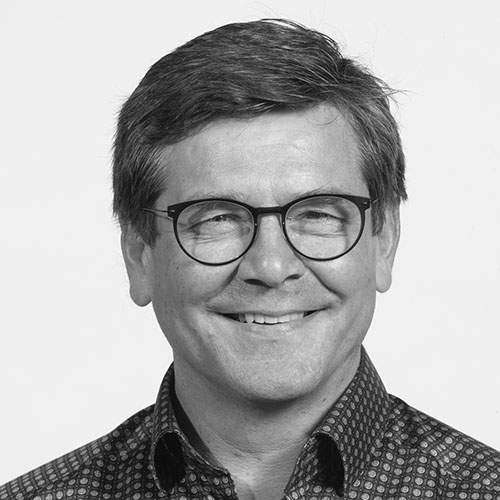The past two years were my first as chair of the department of Rehabilitation Medicine at Erasmus MC. They have been dynamic and have thrown several challenges. Serious financial issues were to be solved.
In our collaboration with Rijndam Rehabilitation clinical research leaders were introduced adding new insights, skills, and experiences to our research and tripling the size of the scientific staff. New clinical research lines were added to our portfolio. Besides acquired brain injury, spinal cord injury and pediatric rehabilitation were defined as new clinical focus areas in research.
New collaborations were instituted within the Convergence of Health and Technology initiative in which the Erasmus MC, the Erasmus University and the Technical University of Delft join forces to face the challenges of future healthcare. We invested in science as a team effort involving researchers from junior to senior staff, cultivating personal and professional relationships.

Gerard Ribbers
Department of Rehabilitation Medicine
Junior staff involvement was increased by introducing meet-the-professor sessions and with the introduction of a linking-pin PhD student joining regular staff meetings. Cross-fertilization between clinical residents and physiatrists of Rijndam rehabilitation and researchers was improved with joined meetings discussing ongoing and new research projects.
Optimizing the synergy between the spearheads in clinical care and innovation of Rijndam rehabilitation and our research department was and will be an important topic. And last but definitely not least we persevered through a pandemic curtailing on-campus activities and challenging new approaches to conducting research remotely and to integrating new staff members in online sessions.
Yet, through all of this, we have remained resilient, maintained a healthy research workforce and kept focus on our mission: to reduce the burden of motor disorders through excellent research and education on four research lines: innovative rehabilitation technology, physical fitness and life style, physical behavior monitoring and personalized treatment of upper extremity disorders. The research lines converge on clinical focus areas: acquired brain injury, spinal cord injury, pediatric rehabilitation, hand rehabilitation and cardiac rehabilitation. Together with the department of Pulmonology we obtained a grant to study the long term consequences of a COVID infection including over 600 patients with a two years follow up.
Optimizing the synergy between the spearheads in clinical care and innovation of Rijndam rehabilitation and our research department was and will be an important topic.
Our success
Our research portfolio exceeded a significant milestone with expenditures surpassing 3.4 million euros. We published about 150 papers in peer reviewed journals and 14 students finished their PhD’s, one of them was warranted Cum Laude. Major grants such as the ArmCoach4Stroke (850k€), the COMET project (600k€) and the Co-Flow project (550k€) were acquired.
Our success is a testament to our teamwork, the talent of our researchers, and the continued confidence of our sponsors. It is for these reasons, and many more, that I am honored and feel privileged to serve as chair of this department. I look forward to meet new, young investigators driving the future directions of our research.
I will continue my efforts to support and develop our talented trainees and continue to collaborate in the convergence project with the Technical University of Delft, Rijndam rehabilitation and Laurens geriatric rehabilitation. This opens new options to further increase our ambitions on research, innovation and education in rehabilitation the upcoming years into a Convergence Human Mobility Center.
Our success is a testament to our teamwork, the talent of our researchers, and the continued confidence of our sponsors.